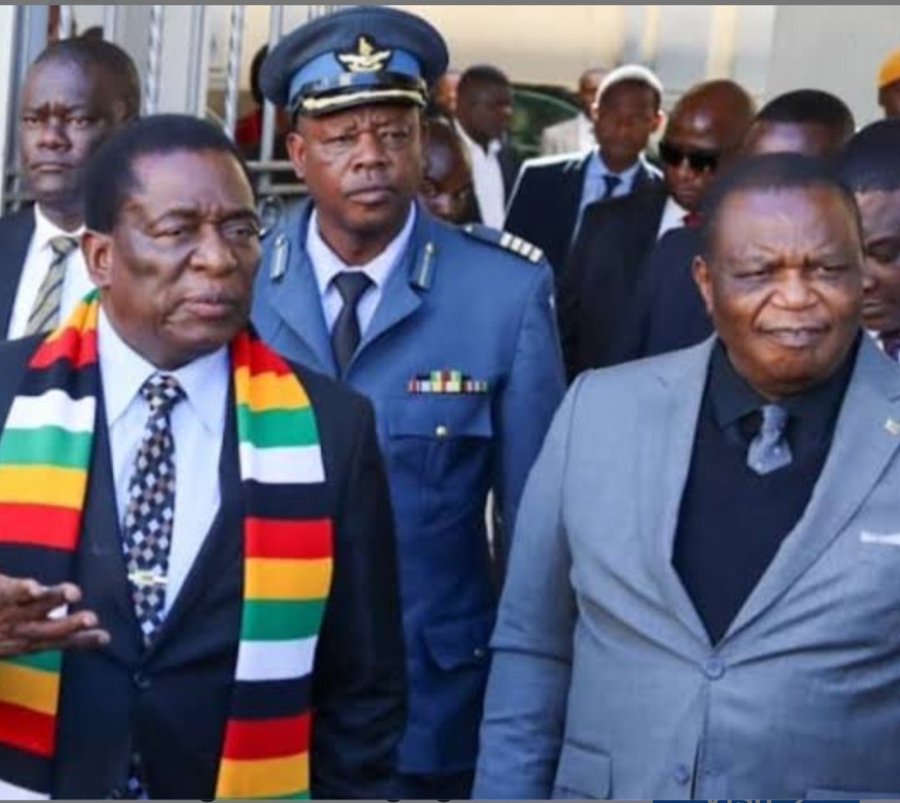CHINAMASA SPARKS CONTROVERSY WITH HISTORICAL COMPARISONS

Patrick Chinamasa, a senior member of Zimbabwe’s ruling party Zanu PF, has stirred up debate with recent comments linking the party’s goals to the legacy of important historical figures. Chinamasa claimed that the actions of current political players like Tshabangu unintentionally support Zanu PF, and that heroes from Zimbabwe’s past, such as Mbuya Nehanda, fought for the same cause that the ruling party now carries forward. This type of statement is not new for Chinamasa. Back in 2020, he made a similar comparison between President Emmerson Mnangagwa and Mbuya Nehanda, who was a revered ancestral figure from the 19th century. He argued that the criticism Mnangagwa receives on social media today is similar to the resistance that Nehanda and Sekuru Kaguvi, another anti-colonial figure, faced in the colonial period.
Chinamasa’s words do more than just compare current and past figures. He paints a picture where the struggles of Zimbabwe’s heroes against colonialism are connected to Zanu PF’s present-day actions. In this view, Mnangagwa and his leadership are seen as part of the ongoing fight against outside oppression. Chinamasa also suggests that the social media backlash and international sanctions against Zimbabwe today are modern versions of the challenges that Nehanda and her companions dealt with during the colonial era.
Some critics believe that Chinamasa is using history to strengthen the party’s grip on power. By linking Zanu PF’s leaders to respected figures from Zimbabwe’s fight for freedom, Chinamasa makes it seem as if Zanu PF is the rightful continuation of that struggle. This can create a strong emotional response from people who remember the difficult times of colonialism and the fight for independence. The comparison also allows Chinamasa to present today’s problems—like sanctions and online criticism—as part of a bigger battle that has been going on for a long time.
The idea that negative comments on social media are like the oppression faced by Nehanda and other colonial-era heroes is a bold one. Chinamasa is suggesting that the same forces that fought against Zimbabwe’s independence are still working today, just in different ways. This puts Zanu PF in the role of the defenders of the country’s dignity and independence. For many Zimbabweans who are deeply aware of their history, this message might strike a chord.
Chinamasa’s comments reflect a larger trend in politics where history is used to justify the present. In Zimbabwe, the story of colonialism and the fight to be free is still very much alive in people’s minds. This makes it easier for Zanu PF to use the memory of past heroes to support their own political goals. But at the same time, it raises questions about how fair it is to use these historical figures in this way. Critics argue that it is a selective reading of history, one that ignores other parts of the past that might not fit with the current political agenda.
In the end, Patrick Chinamasa’s statements are part of a bigger effort to connect Zanu PF’s rule to the proud legacy of Zimbabwe’s fight for independence. By doing so, he aims to strengthen the party’s image as the protectors of national pride and freedom. Whether or not this strategy will work with the people of Zimbabwe is not yet clear. But one thing is certain: it adds another layer to the already complex political landscape in the country. As Zimbabwe continues to deal with the challenges of the post-colonial era, the way its history is used in political debate will continue to play a major role. Chinamasa’s words remind us of how powerful history can be in shaping the present, especially in a country with a past as complicated and significant as Zimbabwe’s.

